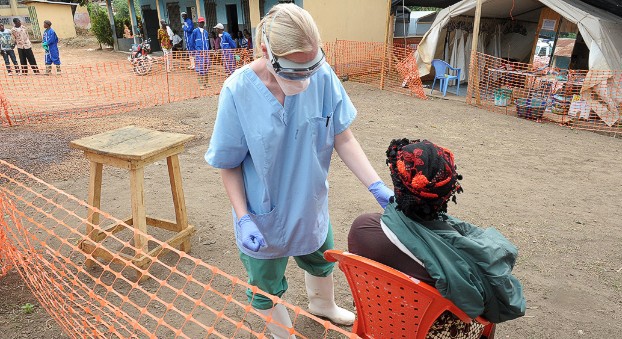
Mobilizing Ebola survivors could help contain the epidemic faster, experts say in an editorial published this week in the International Journal of Epidemiology.
In the editorial, researchers from the Departments of Psychiatry and Epidemiology at Columbia University in New York describe four main reasons why Ebola survivors are critical to controlling the outbreak in West Africa, where more than 18,00 people have already been infected with the virus and at least 6,500 have died from it.
The first of these reasons is that people who have recovered from their infection have developed immunity to the current strain of Ebola, which makes them able to care for sick people with little to no risk of becoming infected again.
“In a sense survivors are the only people in the world who are ‘vaccinated’ against further Ebola infection with the strain in circulation,” says Dr. Zena Stein, of the HIV Center for Clinical and Behavioral Studies at the New York State Psychiatric Institute and Joseph Mailman School of Public Health at Columbia University. “This uniquely positions them to mediate between the infected and uninfected and between local people and foreign responders.”
The second reason outlined by Dr. Stein and colleagues is that survivors could be valuable blood donors. Their antibodies may have protective properties and could also improve the chances of survival in those infected with Ebola.
The rationale behind the approach is that blood from recovered patients contains antibodies and other components that may help the transfused patient fight off the virus. Antibodies are produced by the body’s immune system to fend off harmful things such as viruses. They remain in the blood ready to fight off any future infections by the same foreign substance.
Blood from survivors of diseases including bird flu and anthrax has been used in the past when doctors ran out of options and seems to work best in diseases where there’s a toxin, such as anthrax and tetanus. However, research has not yet demonstrated the effectiveness of this kind of immunotherapy for Ebola.
Communities may be more receptive to local Ebola survivors than foreign caregivers
There is a cultural dynamic behind the authors’ third reason. Ebola survivors in afflicted countries often speak local languages, and communities may be more receptive to their aid than foreign responders.
The authors consider that their cultural position would allow Ebola survivors to care in both medical and home-based settings. In addition, training and employment as caregivers would allow Ebola survivors to have an important source of income during a period that has seen increasing poverty and Ebola-related stigmatization.
The fourth and final reason behind the experts’ rationale of mobilizing Ebola survivors, is that survivors may be able to generate a vital community-based response to the epidemic.
The authors explain:
“Community-initiated actions in epidemics are recognized as important to public health, and have already been proven successful in an African context. For instance, the Treatment Action Campaign in South Africa has generated an effective, nationwide social movement among those HIV-positive, stigmatized and deprived of treatment. A movement among Ebola survivors could establish their effectiveness as advocates and educators, countering stigma and building community trust.”
Survivors could be identified through medical records, community leaders and public messages, the editorial suggests. Once their immunity is verified using blood tests, interested survivors could be trained as caregivers. This would allow staff who are not immune to move to positions where their exposure to Ebola is minimized. It has also been suggested that natural immunity to Ebola may be present in some members of the population who are exposed to the virus but never succumb to it or show symptoms of being infected.
“Slowing and then stopping the spread of Ebola in West Africa is not only crucial to the region, but also to public health around the world,” says Dr. Stein, “as demonstrated by the recent spread of the virus to Spain and the US. But overcoming the crisis wrought by Ebola will require sustained action, cultural insight and cooperation among affected communities and international responders.”
In October, scientists announced plans to start testing whether the blood of Ebola survivors can help infected patients fight off the disease. Trials are scheduled to start by the end of the year.
